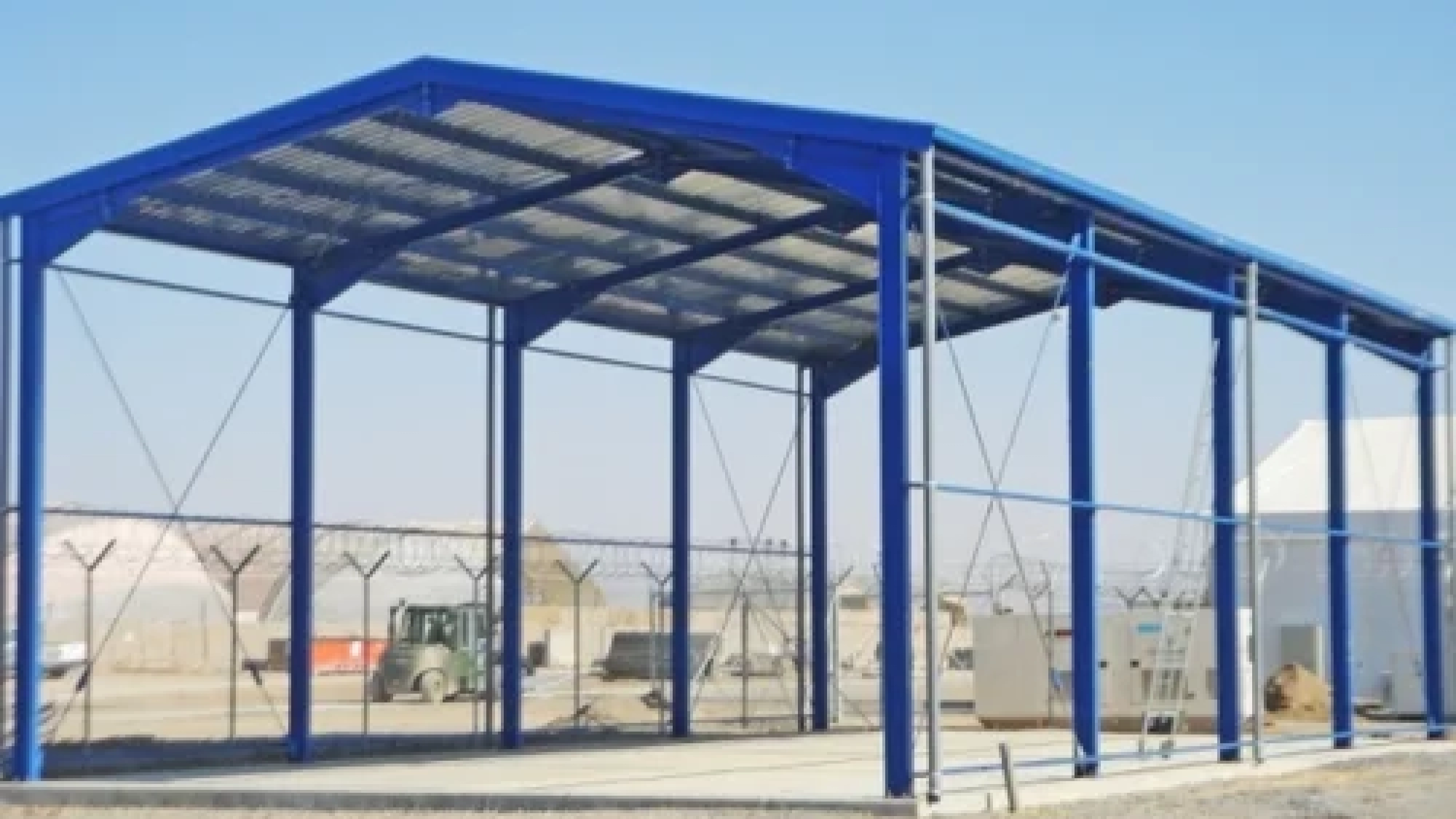Introduction
In the construction landscape of the Middle East, where extreme weather conditions, seismic activity, and high demand for rapid construction are common, finding resilient and cost-effective building solutions is critical. Pre-Engineered Buildings (PEBs) have become a game-changer in this context, offering a combination of strength, flexibility, and speed in construction. In this blog, we will explore the role of PEBs in Middle Eastern construction, highlighting their benefits, applications, and how they address the region’s unique challenges.
What are Pre-Engineered Buildings (PEB)?
A Pre-Engineered Building (PEB) is a structure that is designed, fabricated, and assembled off-site in a factory before being transported and installed at the construction site. These buildings are made using a combination of steel and other materials, with each component being manufactured according to specific design requirements. The result is a highly customizable, strong, and efficient building that can be quickly erected. PEBs are primarily used in industrial, commercial, and residential applications, including warehouses, factories, showrooms, and more.
Why Pre-Engineered Buildings are Perfect for the Middle East
-
Adaptability to Harsh Weather Conditions:
The Middle East is characterized by extreme temperatures, sandstorms, and high humidity, which can cause rapid wear and tear on traditional buildings. PEBs are designed to withstand these challenging conditions, with steel frames that resist corrosion and can endure high temperatures without compromising structural integrity. The materials used in PEBs are engineered to resist the effects of extreme weather, ensuring the building remains strong and durable over time. -
Rapid Construction and Cost Efficiency:
In a region where time is often of the essence, PEBs offer a significant advantage in terms of construction speed. Because the components of a PEB are pre-manufactured in a controlled factory setting, they can be quickly assembled on-site. This leads to shorter construction timelines and reduced labor costs. Additionally, PEBs are cost-effective as they minimize material waste and reduce the need for on-site fabrication, making them an ideal choice for large-scale projects that require a fast turnaround. -
Energy Efficiency and Sustainability:
Energy efficiency is a growing concern in the Middle East, where high temperatures drive the demand for air conditioning and energy consumption. PEBs can be designed with energy-efficient insulation systems that help maintain a comfortable temperature inside the building. The use of insulated panels and roofing materials reduces the need for excessive cooling, leading to lower energy consumption and operating costs. Furthermore, PEBs are often made with recyclable materials, contributing to sustainability efforts in the region. -
Seismic Resistance and Structural Integrity:
Many areas in the Middle East, especially in countries like Iran and Turkey, are prone to seismic activity. PEBs are designed to be highly resistant to earthquakes and other seismic events. The steel framework and bolted connections allow for flexibility and movement during seismic events, reducing the likelihood of structural failure. This makes PEBs a safe and reliable option for buildings in seismic zones. -
Customization and Flexibility:
One of the standout features of Pre-Engineered Buildings is their flexibility. PEBs can be customized to suit a wide range of requirements, from the size of the structure to the type of roof, flooring, and wall systems used. This versatility makes them suitable for various applications, including warehouses, factories, distribution centers, and commercial complexes. Whether you need a simple storage facility or a complex industrial building, PEBs can be tailored to meet your specific needs. -
Minimal Maintenance:
PEBs are designed for longevity with low maintenance requirements. The high-quality materials used in their construction, such as galvanized steel, are resistant to corrosion, rust, and other wear factors. Once constructed, PEBs require minimal upkeep, making them an attractive option for business owners who want to focus on operations rather than constant maintenance.
Applications of Pre-Engineered Buildings in the Middle East
-
Industrial and Manufacturing Facilities:
In the Middle East, the industrial sector is booming, with the construction of manufacturing plants, factories, and warehouses. PEBs provide a robust and cost-effective solution for these types of facilities. The ability to customize the building’s design for different types of machinery and equipment makes PEBs an ideal choice for industrial use. -
Warehouses and Storage Units:
Given the region’s role as a logistics hub, warehouses and storage units are in high demand. PEBs offer ample storage space with easy expansion options. The clear-span design of PEBs allows for wide open spaces without the need for internal columns, making them perfect for large storage and distribution centers. -
Retail and Commercial Spaces:
PEBs are increasingly being used for retail outlets, showrooms, and commercial buildings. Their fast construction timeline, cost efficiency, and adaptability to various architectural designs make them an attractive choice for developers and business owners looking to establish a presence in the Middle East market. -
Airports, Hangars, and Transportation Facilities:
The Middle East has a growing aviation industry, and the demand for hangars and airport terminals is rising. PEBs are used extensively for these transportation-related structures due to their ability to meet stringent safety standards while providing large, open spaces for aircraft storage and maintenance.
Conclusion
Pre-Engineered Buildings (PEBs) are transforming the construction industry in the Middle East by providing a resilient, cost-effective, and flexible solution for a variety of building needs. From industrial warehouses to commercial showrooms and manufacturing plants, PEBs offer a unique combination of durability, rapid construction, and energy efficiency that makes them well-suited for the region’s harsh environmental conditions. Whether you are building a large-scale industrial facility or a smaller commercial space, PEBs offer a sustainable, reliable, and cost-effective solution that meets the demands of modern construction.
Ready to build a resilient, cost-effective, and energy-efficient structure in the Middle East? Contact us today to learn how Pre-Engineered Buildings (PEBs) can provide the perfect solution for your next construction project. Our experts are ready to assist with the design, planning, and installation of your custom PEB, ensuring a successful and timely completion.


Add a Comment